Most of us are pervaded by a feeling of political numbness, no doubt brought on by the ‘plaster cast’ Mr. Papadopoulos claimed he had applied for our good during the past seven years. We are conscious, of course, that the end of the dictatorship, and the decision to hold early elections, are the outcome of the national disaster in Cyprus. We are also aware that the government we bring to power must extricate us from that mess with as little humiliation and material losses as possible and then deal with the tricky question of our NATO membership.
The same government, however, will also have to deal with problems that affect us more immediately such as keeping inflation under control, closing the balance of payments gap and getting the economy rolling again. It will also have to strike a delicate balance between the demands of the country’s reactivated labour unions, and employer resistance to their demands, which might lead to a wave or waves of crippling strikes.
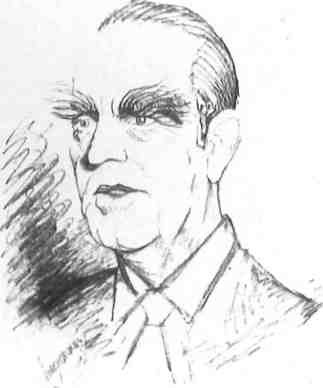
The chief contender, and Prime Minister of the interim government responsible for the elections, is, of course, Constantine Karamanlis. This tall, handsome, greying man of 67, hails from Serres in the north of Greece where he began his career as a lawyer in 1932. In 1935 he entered politics and was returned to parliament from Serres as the candidate for the right-wing Populist Party. He withdrew from politics in 1936 when the Metaxas dictatorship ruled the country. Karamanlis was re-elected in 1946, again under the Populist banner, and was Minister of Labour. Transport and then Social Welfare in successive governments headed by Constantine Tsaldaris, Dimitrios Maximos and Themistocles Sophoulis up to 1949. In 1950 he was re-elected and appointed Minister of Defence for a short while in a coalition government headed by Sophocles Venizelos and then joined the Rally of the Greek People under Field-Marshal Alexander Papagos. He is widely credited with having been a particularly successful Minister of Public Works for three years in the Papagos government. Greece at that time was beginning to rebuild on the ruins of four years of German occupation and five years of civil war.
When Papagos died in October 1955, King Paul selected Karamanlis as his next Premier, choosing him over the heads of Panayotis Kanellopoulos and Stephanos Stephanopoulos who had both been Vice-Premiers in the Papagos government. Karamanlis won a vote of confidence in Parliament and four months later formed his own party which he called the National Radical Union. He won the next elections in 1956 and 1958 with comfortable majorities and was able to remain in power until 1963 — in spite of strong accusations by the Opposition that the last election in 1961 had been rigged. That election had returned his party with 174 seats in the 300-seat house.
In 1963, he handed in his government’s resignation to King Paul. The alleged reason was disagreement over the king’s desire to pay a state visit to Britain in spite of the danger of demonstrations that would prove embarrassing to the country. A short time before, Queen Frederica and Princess Irene had narrowly escaped an undignified street brawl, in front of Claridge’s Hotel in Mayfair, with Mrs. Betty Ambatielos, an Englishwoman married to a Greek seamen and communist leader who was under detention in Greece.
The election thus precipitated by his resignation was won by George Papandreou’s Centre Union upon which Karamanlis decided to leave the country, little realizing that his self-imposed exile would last for almost 11 years. The leadership of the National Radical Union was handed over to Panayotis Kanellopoulos.
Karamanlis now heads a newly formed party called the New Democracy. Its political orientation is reckoned to be centre-right and it appears to stand the best chance of winning the election. This is because of Karamanlis’s enormous prestige; his past record as a man who gets things done; his successful handling of events during the past two months, since the collapse of the dictatorship and the proclamation of elections; and the hope among more liberally-inclined voters that his years in Paris will have mellowed him and rubbed off some of the corners of his rather autocratic nature.Counting against him is the natural reaction of many voters against anything savouring even faintly of the right and a feeling that the Centre Union, so brutally deprived of its virtually certain electoral victory in May 1967, should be given its chance. He will also be confronted with resentment on the part of some of his former supporters at his seemingly capricious unwillingness to lead the parliamentary opposition in 1963 and his abandonment of his party and its supporters to the ineffective leadership of Mr. Kanellopoulos, his wife’s uncle.
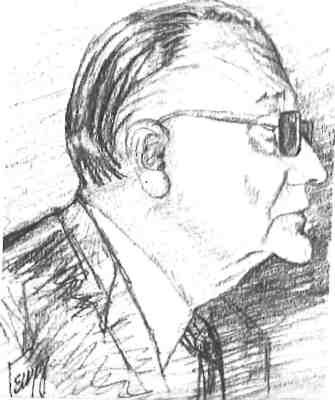
Second favourite is the Centre Union headed by George Mavros. This party contains the survivors of George Papandreou’s and Sophocles Venizelos’s Liberal Party and has now been joined by a left-of-centre group calling itself the New Political Forces headed by John Pezmazoglou, George Alexander Mangakis and others.
The success or failure of political parties in this country still hangs, unfortunately, on the personality of their leaders. A man with a strong personality or with proven abilities — or even, simply, with a certain amount of charisma and a flair for oratory — can set up a party, profess to adhere to certain vague principles, and build up a following that may hand him an election on a silver platter. But no sooner does he disappear from the scene, than his party collapses like a deflated zeppelin. More often than not, when it is revived by another strong personality, it is given a new name and the old party is completely forgotten.
George Mavros, may well have remained a relatively less well-known figure to the great majority of voters were it not for the fact of his appointment as Foreign Minister in the first post-dictatorship government. His handling of the Cyprus issue and his frequent appearances on TV and the newsreels were a revelation to a great segment of the public which was quick to appreciate his basic common sense and firm grasp of the issues with which he was dealing.
Mavros is a 65-year-old veteran politician and an expert on international law. Since 1946, he was almost continuously a member of Parliament and a Minister in various Liberal Party and Centre Union governments. He withdrew from the political arena in 1964 to assume the governorship of the National Bank of Greece. After the coup of 1967 he was hounded and harassed by the junta, placed under house arrest, detained, exiled to Yaros and made to suffer all kinds of indignities because of his steadfast opposition to the dictatorial regime.
The leadership of the Centre Union reverted to Mr. Mavros almost automatically after the death of George Papandreou and the departure of his son, Andreas Papandreou.
The Centre Union – New Political Forces movement will almost certainly win the vote of die-hard liberals and incorrigible Venizelists as well as that of the more conservative left-leaning youth. It is expected to receive strong support in the big cities but not so much in the provinces. Its policies differ little from those of the Karamanlis party. In the minds of most voters the question will be: ‘Who gets my vote, Karamanlis or Mavros?’ and not what their parties represent.
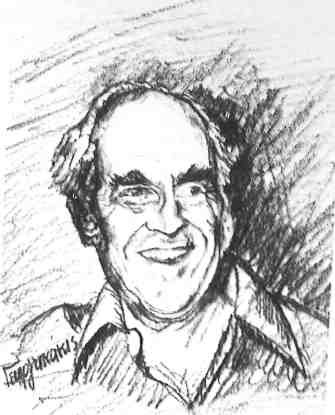
The next contender, in order of importance, is Andreas Papandreou, the maverick son of George Papandreou who has the dubious distinction of having caused more controversy and aroused more passions than perhaps any other man in modern Greek history. He is also blamed, through his actions, for unwittingly precipitating the military coup of April 21.
The 55-year-old Andreas is a brilliant economist who, in spite of his Harvard background, his American wife and the fact that he has belonged to the faculties of major American universities, has adopted fiercely anti-American policies and consistently denounced American interference in Greek affairs. He considers himself to be a socialist and is the leader of the Panhellenic Socialist Movement, better known under the Greek acronym of PASOK.
A political force to be reckoned with in precoup days, whose socialistic leanings struck fear and terror into the hearts of the country’s conservative elements, he is now no longer considered a dangerous opponent by the New Democrats or the Centre Union. He is widely accused of being an opportunist but his consistently radical views have, in fact, deprived him of the sizeable following he would almost certainly have enjoyed had he cashed in on his father’s popularity and chosen the traditional road to political victory .
The extreme left is composed of the formerly outlawed Communist Party and the EDA party, the legitimate cloak under which the Communist Party was able to function in pre-coup days. The Communist Party, KKE, is divided into two separate wings, the Interior (Esoterikou) and the Exterior (Exoterikoi). It is referred to as Koo-Koo-Eh. At the extreme right is the National Democratic Union of Petros Garoufalias, the controversial Minister of Defence in the last Papandreou government. Neither the KKE-EDA union, entitled the United Left, nor the National Democratic Union are expected to return more than a handful of deputies, in view of the electoral system under which this election is being held.
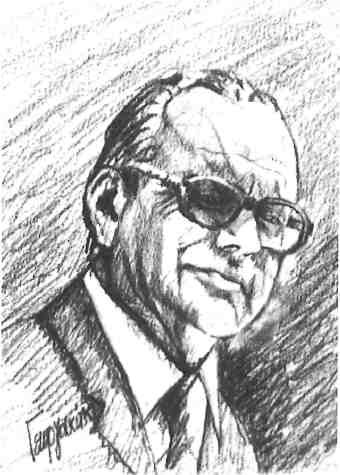

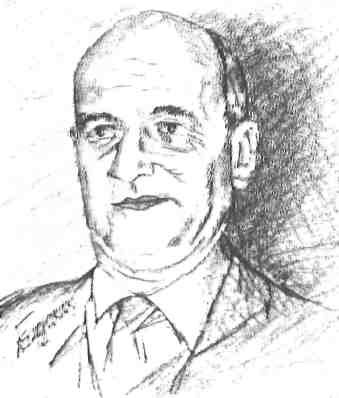
This system is known as the reinforced proportional system. Greece is divided into 55 electoral districts, each returning a number of deputies in proportion to its population for a total of 300 deputies.
Under the reinforced proportional system, there are two distributions of seats in accordance with the total percentage of votes won by each party. A bonus of 12 seats is reserved for the winning party and runner-up. Thus, a party that corners 50% to 53% of the total vote in each district returns 136 deputies on the first distribution of seats. The other parties get 75 seats while 77 seats are held over for the second distribution. If a party wins 34% to 35% of the total vote in each electoral district, it is entitled to 79 seats on the first distribution. A party with 25% to 27% of the total vote in each district gets 59 seats on the first distribution. A party with 17% to 18% of the vote in each district gets 28 seats on the first distribution. There are 80 to 90 seats left for distribution on the second round, not counting the 12 bonus seats.
What happens if two parties run neck to neck for the second distribution of seats can result in a mathematical headache of the first order and for the past few weeks, Athens newspapers have been full of abstruse calculations based on the possible percentages of each party. The fact remains that a party that wins more than fifty percent of the total vote is assured of its 136 seats on the first distribution and another 50 or so seats on the second distribution to make for a strong working majority in Parliament.
The fact also remains that the party that does get in will need such a working majority to enable it to take several unpopular measures that will probably be needed to solve the country’s most immediate and pressing problems.







